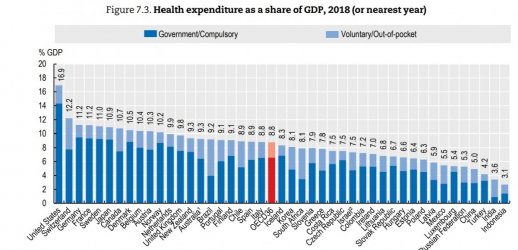It's unfortunate that this thread has deteriorated when I challenged the statement "At 80% vaccination in one of the worlds richest countries, there should be zero issue in handling a few covid patients." I asked for facts, and did not get any - not one.
Instead I was dismissed, having "cherry picked numbers to get to a worst case scenario". The 6% I quoted is a real number, not cherry picked. It is a fact.
Currently 90% of the UK population have antibodies despite only 66% being vaccinated. So there is a 24% discrepancy, commonly attributed to previous COVID exposure. Compare that to Australia where there have been 80,000 cases amongst population of 25 million, less than 0.5%. So in some ways we are more vulnerable even at 80% vaccination.
Granted, the UK experience is not directly comparable to AU. They have suffered greatly, with over 160,000 deaths. This is about 1:500 of the population. We will not have the same large cohort of previously COVID exposed population. So those pictures about what is happening elsewhere, such as the UK, may not translate to a similar situation here.
Regarding patient care. ICU is a risk minimisation tool for the hospital and the healthcare system. Patients are referred to ICU from surgeons/anaesthetists, emergency physicians, general and sub-specialist physicians. So until they are accepted, ie we can care for your patient at the appropriate level, the care responsibility remains with the referrer. The four patients mentioned were either transferred facilitated out to other hospitals, or were managed on the ward with an appropriate care plan, or cared for in recovery, until a bed (and more importantly a nurse) became available. They all received appropriate care, but not what I would call ideal care.
In regards to the healthcare collapsing. I have never intimated that the health system would collapse. If you look at the post, it is quite clear that there where over 100 beds still available. I also stated most of the load is in a few hospitals, where usual service provision is not possible. This is a fact. I know that hospitals even last night where transporting significant numbers patients out (more than in my post).
The numbers put up are some guesstimates over 6 months - that is clearly stated. This should be enough time to make provisions for this rapidly evolving problem. So I think it is unlikely that we will get to a healthcare collapse situation, but I say that through the lens of high uncertainty of COVID.
In regards to my answers that I can offer, social policy is not my area of expertise, but my suggestions are mainly medical. If you have something to offer, we should be able to debate the pros and cons in a civil manner.
I would suggest:
1. Improve in flow of foreign trained nurses and doctors, which was quite common prior to COVID. This needs to happen ASAP. We need those overseas trained nurses and doctors.
2. Improve Nursing conditions. The CARE in the intensive care units is almost all from nurses. They are backbone of the ICU. ICU and emergency nurses are very highly trained and also some of the only nurses where day/night workloads are equivalent. Depending of shifts, that means 33%-50% of your working life is night shift. Understandably, this takes its toll on longevity of career nurses. There are reports of nurses increasingly walking away from ICU and Emergency because of COVID fatigue. Healthcare workers are exhausted and essentially "they don't need this in their lives". Sad but true.
3. Treat COVID with respect, and vaccinate widely. We are not going to get through this with "she'll be right mate" or "there is no problem" attitude, we need individuals and communities to pull together with healthcare. I think healthcare workers need community affirmation, as morale will no doubt decrease as this drags on.
I have always on this forum tried to offer latest facts and science to better understand this pandemic. Most posters on this forum are successful and intelligent people, who might be able to influence the sphere around them.
TM















